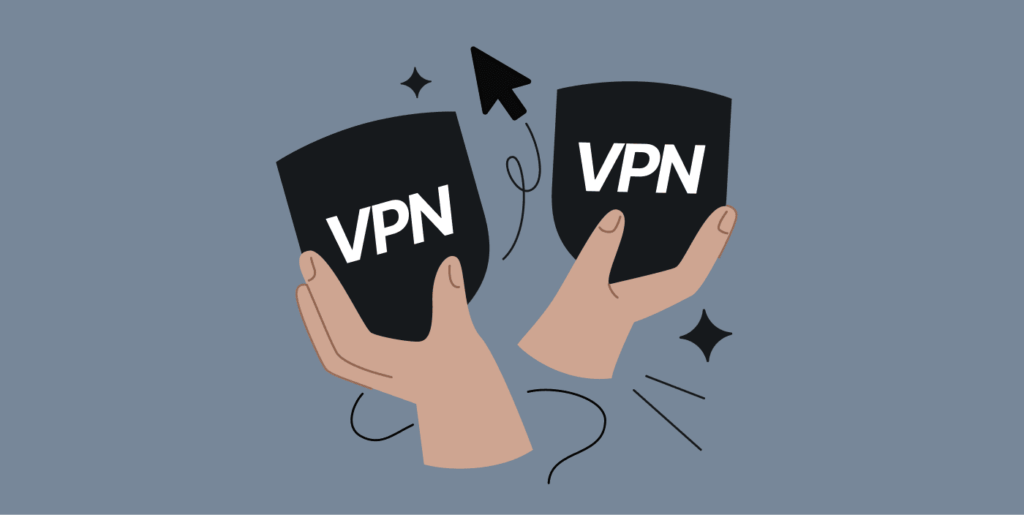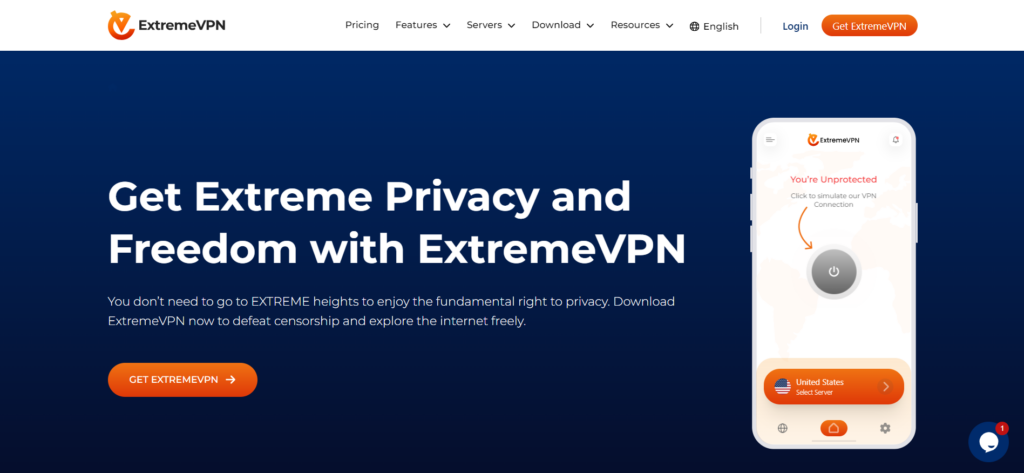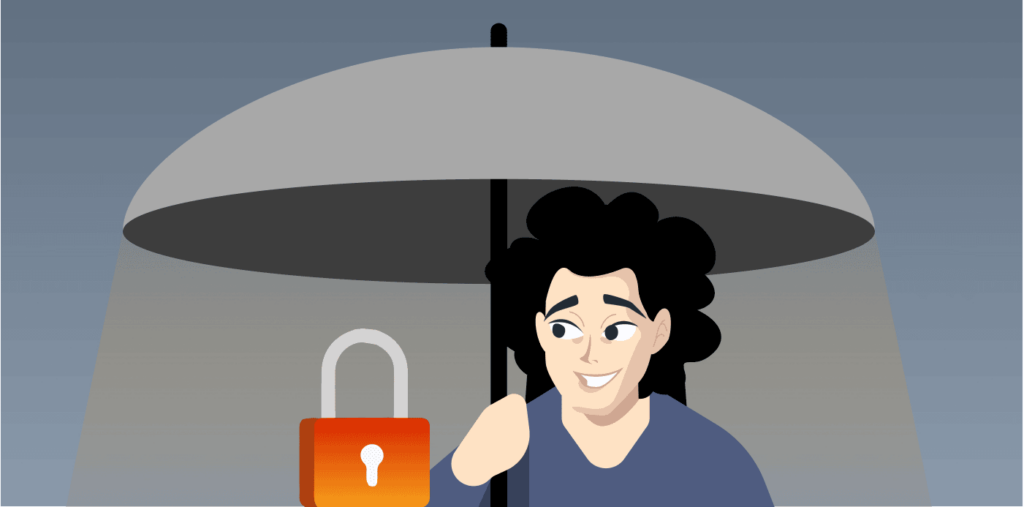Since the pandemic, more people have decided to go into freelancing and remote jobs. If you are a freelancer, you may have encountered restrictions while accessing job opportunities outside your country.
Aside from the restrictions, every freelancer and digital nomad needs a secure and private internet connection. This is because public Wi-Fi networks might put you at risk of cyberattacks.
So, what is the solution? A VPN. ExtremeVPN provides a seamless freelancing journey and stands out above all regarding privacy, security, and overall functionality. Read on to learn how a VPN helps privacy enthusiasts. You’ll also explore the challenges every freelancer and digital nomad faces.
How to Set Up a VPN for Freelancers – Quick Guide
Here’s how you can use a VPN for remote working:
- Select a VPN service for yourself. ExtremeVPN is the top choice with strong security and encryption.
- Go to the Pricing page and select a plan accordingly.
- Download the application on your device. ExtremeVPN is compatible with almost all operating systems (iOS, Windows, macOS, and Android). We also have a dedicated Chrome VPN extension.
- Run the application and sign in with your credentials.
- Choose and connect to a server location. Tip: Choose one that unblocks the content you want to access, i.e., if you’re in the US and want to access a site from Australia, make sure you connect to an Australian server.
Challenges that Remote Workers Face
A remote worker is a general term that best describes freelancers and the digital nomad community. Thanks to technology, remote workers can handle various projects, offer services, and communicate with clients from different locations with an internet connection.
Several advantages are attached to the freelancing workstyle, such as flexibility, better work-life balance, and the chance to travel; however, it has notable downsides. Some of these downsides are experiences you can relate to, including:
- Geographical blocks: Countries like the UAE and China restrict website access, content, and online services. This can be challenging for freelancers visiting there; hence, they must understand the mechanism of region blocks.
- Data exposure: A freelancing routine is handling client data. As a result, you must prioritize client data because a little mistake can ruin your career or even result in a lack of clients’ trust.
- Unsafe public networks: Connecting to public Wi-Fi networks while working in public places like hotels, cafes, and airports exposes you to cyberattacks. Additionally, these networks’ vulnerabilities raise concerns about third parties’ breaches of sensitive data for financial gain.
- Language barriers: When working remotely, you may notice that certain websites display information in their local language rather than your preferred language. For instance, a British web developer visiting China might need help understanding or accessing Chinese content.
Having discussed the common problems digital nomads and freelancers face, let’s review how a VPN could be your ally in such situations.
What is a VPN, and Why Do You Need it for Working Remotely?

A VPN or Virtual Private Network is software that creates a safe and encrypted connection between a distant server and your device. The connection goes through the VPN server, making it look like your internet traffic originates from the server’s location.
Here are some reasons to use a VPN as a freelancer or digital nomad:
- Online privacy: VPNs hide your IP address, guaranteeing privacy and preventing third-party attempts to track your activities.
- Top-tier security: By encrypting your data, a VPN ensures it is unreadable by prying eyes. For instance, ExtremeVPN uses AES-256 encryption, a top-tier security and privacy protocol that has yet to be surpassed by another.
- Global connectivity: A VPN’s wide network of global servers makes it simple to select the locations you need.
- Safe online financial transactions: Freelancers typically have to handle payment processing. Nevertheless, restrictions imposed by banks might present challenges. A VPN lets you manage your funds from anywhere and guarantees safe online transactions.
- Secure public connections: VPNs protect your data against cyber-attacks thanks to their encryption capabilities. So, rest assured that with a VPN, you are safe on public networks.
- VoIP communications: Some countries restrict VoIP services, reducing a freelancer’s communication options. But a VPN allows you to access any preferred VoIP service, including Skype. This guarantees smooth communication with colleagues and offers cost-saving solutions.
ExtremeVPN: The Top Choice for Remote Working and Freelancing

ExtremeVPN stands out as the best VPN for freelancers and digital nomads for the following reasons:
- Solid security protocols: ExtremeVPN prioritizes your security. We use strong safety protocols that provide a complete defense against online threats. These protocols include AES-256 encryption, WireGuard, and many more.
- High-speed servers: ExtremeVPN servers operate at super-fast speeds. These servers ensure smooth streaming without buffering in corporate settings where various tasks demand service with unlimited bandwidth. This is especially beneficial if you deal with large file uploads and downloads.
- Broad server network: With 6,500+ servers in over 78 countries worldwide, you can rest assured of a reliable and efficient workspace.
- Multi-device compatibility: ExtremeVPN works with several devices and operating systems, including iOS, macOS, Android, smart TVs, Windows, and Linux. Moreover, a single subscription lets you connect up to 10 devices simultaneously.
- Cost-effectiveness: You can choose from budget-friendly monthly plans and a lifetime subscription option for flexibility. ExtremeVPN provides a 30-day money-back guarantee so that you can try out its service without any risk.
- Enhanced features: ExtremeVPN goes the extra mile to offer enhanced features like the “Kill Switch.” If your connection is lost, the kill switch feature is your fail-safe, preventing data leakage.
- 24/7 customer support: You can always count on ExtremeVPN to provide dependable customer service when needed.
As a freelancer, your dream is to be able to work from anywhere. However, you will likely encounter several privacy and cybersecurity issues while freelancing. But you don’t have to worry because you’re closer to achieving your dreams with ExtremeVPN in your corner.
Other Security Tips for Freelancers

Although cybersecurity is essential for everyone using the internet, it becomes much more necessary for digital nomad groups who work remotely and travel frequently.
Here are some pointers for internet safety:
- Use a reliable antivirus program to protect your internet activities from malware and virus attacks.
- Employ device trackers to constantly and efficiently monitor and secure your devices.
- Invest in a top-notch password manager to safeguard sensitive data, including passwords and personal information.
- Turn on multi-factor authentication for extra security on all your accounts and devices.
